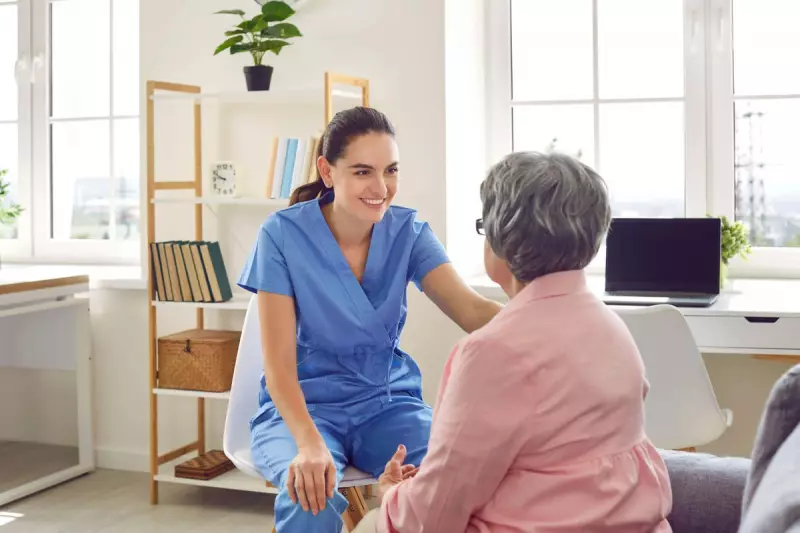
As December draws near, it presents an ideal opportunity to address any pending health matters before the Christmas season gets into full swing. For individuals over sixty, maintaining a proactive approach to health becomes increasingly vital.
Dr Angela Rai, a GP at The London General Practice, emphasises that while genetics are a factor, the combined effects of ageing, environmental exposure, and lifestyle decisions significantly influence our wellbeing. She notes that advanced screening methods and timely medical advice are crucial for staying ahead of potential health issues, whether you are in your sixties or nineties.
Essential Vaccinations and Screenings
With viruses circulating more actively during the colder months, ensuring your vaccinations are current is a key defensive step. The NHS provides several important jabs for older adults.
The flu vaccine is offered every year to combat seasonal influenza. The COVID-19 booster is advised for older people to sustain immunity, and the pneumococcal vaccine guards against pneumonia. Furthermore, the shingles vaccine is available for everyone from the age of sixty in the UK.
Dr Rai explains that these vaccinations are critical because older individuals often have a less robust immune response, making them more prone to severe illness and complications from respiratory infections. Getting vaccinated helps lower the risk of hospitalisation and prevents serious health outcomes.
Key NHS Health Assessments
The NHS Health Check is a free service intended to spot early indicators of stroke, kidney disease, heart disease, type 2 diabetes, and dementia. It is available every five years for people in England aged 40 to 74 who have not been previously diagnosed with these conditions.
The check includes measuring blood pressure, testing cholesterol and blood glucose levels, calculating BMI, and having a discussion about lifestyle factors such as diet, physical activity, and smoking. Early detection of risk factors enables preventive actions to be taken before a serious condition develops. You can also ask for an annual blood pressure and cholesterol check from your local healthcare provider.
Cancer and Bone Density Screenings
Breast screening is offered by the NHS to women from the age of 50 up to 71. This typically involves a mammogram and/or an ultrasound. If any abnormalities are detected, further tests like a fine needle aspiration or biopsy may be conducted. If you have not received an invitation for screening by age 53, you should contact your local breast screening service.
For those over 50 who are at risk of osteoporosis, a bone density scan, such as a DEXA scan, is often recommended. This scan measures bone strength. Women are at a higher risk, particularly after menopause when oestrogen levels drop, leading to a rapid decrease in bone density. Risk factors include an early menopause, hysterectomy, low body mass, prolonged steroid use, thyroid disorders, and a family history of osteoporosis.
Bowel screening is another critical check. If you are registered with a GP in England and aged between 50 and 74, you should automatically receive a home test kit (FIT kit) every two years. The FIT test looks for tiny amounts of blood in stool. A colonoscopy, which uses a camera to examine the bowel, can also detect polyps. If you are eligible but have not received a kit, you can call the free NHS screening helpline on 0800 707 6060.
Heart, Dental, and Sensory Health
Maintaining heart health is essential from middle age onwards. Dr Rai points out that women over 50 face increased cardiovascular risks due to decreasing oestrogen levels, putting them on par with men. Regular cardiovascular risk assessments are critical and can include cholesterol checks and a CT calcium score test, which screens for coronary heart disease by detecting calcium deposits in the arteries.
Do not overlook dental health. It is advisable to have a check-up every six to twelve months, or as recommended by your dentist. The risk of gum disease and tooth decay increases with age, and oral health directly impacts nutrition and overall wellbeing. Dentists can also help in the early detection of oral cancer.
Finally, regular eyesight and hearing tests are important. Many opticians offer free hearing tests. You should have your eyes tested every two years, or annually if you have diabetes or are at risk of glaucoma. Hearing should be checked every two to three years, or sooner if you notice any changes. Early intervention for vision and hearing loss can prevent falls, social isolation, and cognitive decline, significantly improving quality of life.






